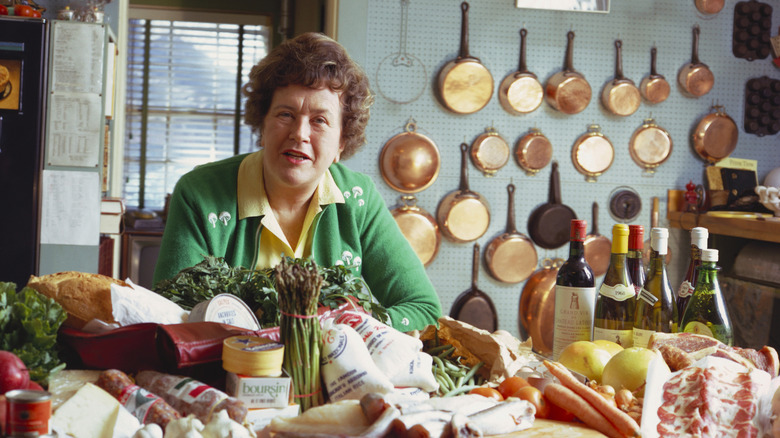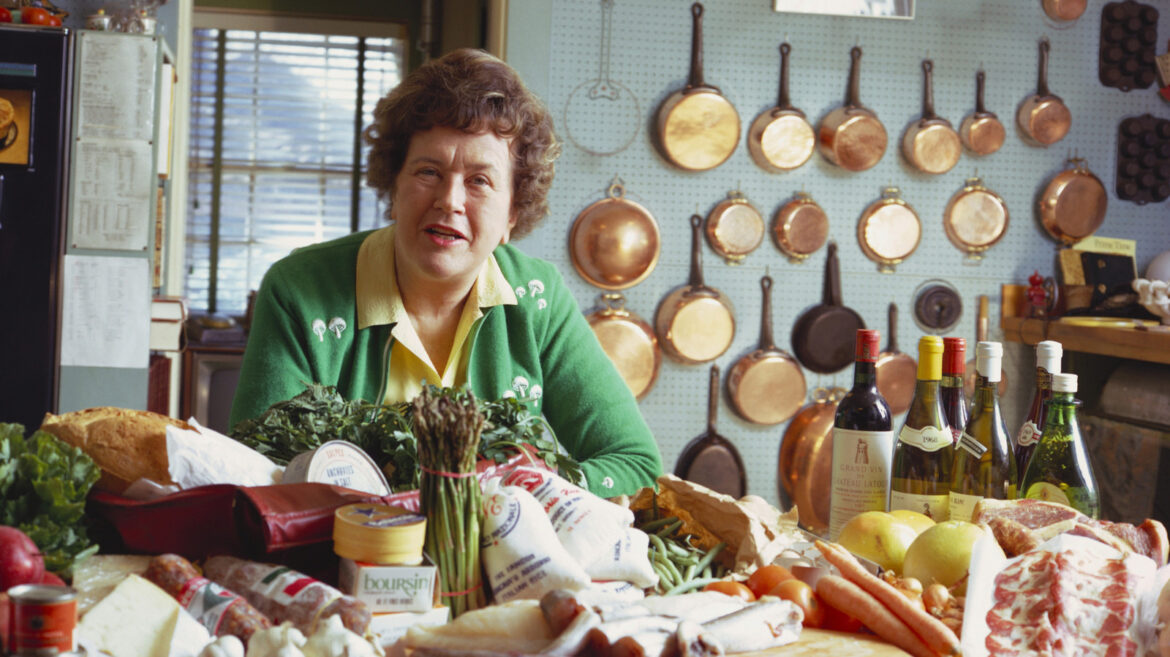
Photo Researchers/Getty Images
Julia Child, author and food connoisseur, was a beloved icon in the culinary world. She appeared on television on her cooking show in the 1960s, where she showed why her favorite cuisine was French food, making her a pioneer who popularized this European fare in America. There, she shared cooking tips and even demonstrated how she created her top picks. One of her most popular lines was, “If you do not have a good wine to use, it is far better to omit it, for a poor one can spoil a simple dish and utterly debase a noble one” (via the New York Times). It might be one of the cooking tips Child has shared that makes every meal a work of art.
Alcohol, in general, brings out the flavors in a dish by breaking down fat-based elements. Not only that, but it also imparts its own aroma and notes, allowing for a more complex taste. If we were to base it on that, it makes total sense for Child to mention that good wine should be used in the kitchen — but was her rule too rigid, and is there enough room for you to break it? Short answer: Your kitchen, your rules.
Do you really need high-quality wine in the kitchen?

D3sign/Getty Images
Some chefs believe that as long as you can drink the wine on its own, it’s perfectly fine to add a splash of it into the dish. And it seems perfectly reasonable, as you might not enjoy the taste of it once it’s in your food — especially if it’s the main star. If we’re equating cheap with bad, though, there are plenty of culinary experts who don’t mind using something cheap. So, whether wine is good or not doesn’t seem to be the most essential aspect. Using something that’s freshly uncorked isn’t a requirement either, especially if you’re slow-cooking meals that will simmer for some time. However, if you’re using it as the finishing touch in your dish when its flavors would really shine, that’s when you should use good wine.
It seems that what’s most important isn’t the quality, but the wine’s profile, density, and acidity. A bold red wine would work well with dishes that require robust flavors, particularly those with fatty components, turning wine’s bitterness less potent due to its tannin-rich nature. That’s why it’s the best type of wine to use for a flavor-rich beef bourguignon. Meanwhile, to sharpen the taste and give it a little pop, white wine is a wise choice. You see it in many pasta recipes to give the dish a more complex and layered taste.

